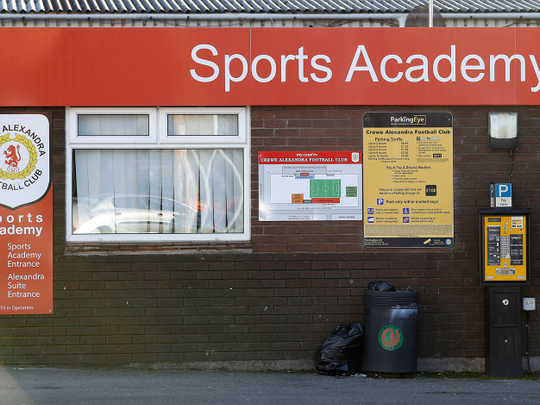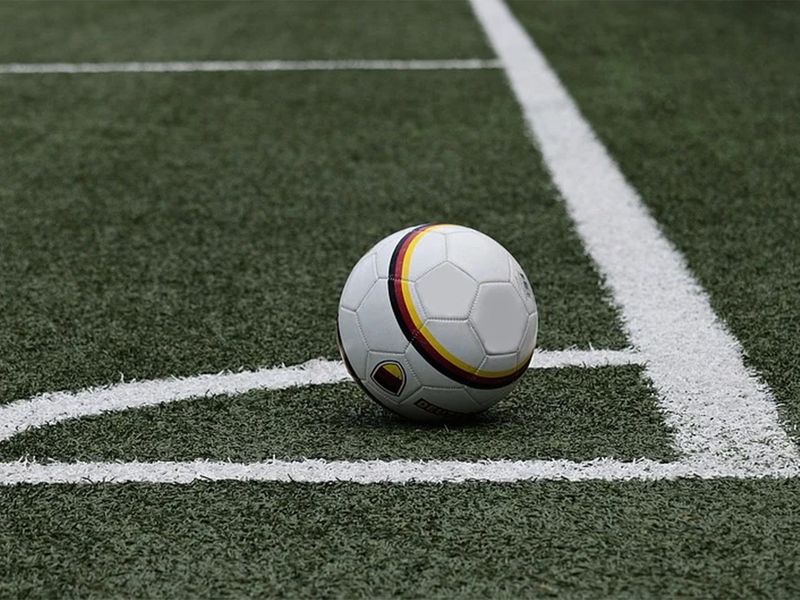
A damning and long-awaited review reveals that the Football Association did not do enough to protect youth players from sexual abuse in football between 1970 to 2005.
The 710-page independent review, led by Clive Sheldon QC, was commissioned by the Football Association in 2016, after former footballer Andy Woodward waived his right to anonymity to reveal he was abused by ex-Manchester City manager Barry Bennell at Crewe Alexandra.
“My life has been ruined until the age of 43. But how many others are there?” Woodward told the Guardian, saying it was the “the softer, weaker boys Bennell targeted” and describing Bennell’s home as a “child’s dream”.
“When you walked through the door there were three fruit machines. He had a pool table. There was a little monkey upstairs in a cage who would sit on your shoulder,” he recalled.
More allegations against Bennell resulted in him going to jail in 2018, sentenced to 31 years for abusing 12 former players.
Other allegations also came to light. Former England and Tottenham Hotspur player Paul Stewart said he was abused by coach Frank Roper.
Former Chelsea player Gary Johnson claimed the club paid him £50,000 in hush money to protect scout Eddie Heath, who died in 1983; 23 witnesses came out against Heath, with serious allegations including rape of a child. Chelsea eventually apologised in 2019.
Survivors also recalled years of harrowing abuse and rape at the hands of paedophile coaches as part of a new three-part BBC One documentary titled ‘Football’s Darkest Secret’.
FA failed to do enough to protect children
The independent review has now found that the FA did not do enough to “keep children safe” and was “too slow” to implement protection measures between 1995 and 2000.
692 survivors and 240 suspects are likely not the only ones involved, as not everyone would have reported their abuse, the review found.
However, the report did not believe there was a paedophile ring.
"I do not consider that perpetrators shared boys with one another for sexual purposes, or shared information with one another that would have facilitated child sexual abuse,” stated Sheldon.
“It is also important that this terrible history is not repeated, and that everything possible is done now to safeguard the current and future generations of young players,” he said.
Former youth players are now warning that sex abuse is still ongoing in the game.
“[It’s] absolutely naive to think it couldn't happen again or that it isn't happening right now,” said former player Ian Ackley, who was abused and raped by Bennell. He now works as a survivor support advocate at the Professional Footballers’ Association (PFA).
“Don't just assume that because someone has a badge, a whistle or a tracksuit that they are OK to leave your children with. Do the right thing and make sure - it's everyone's responsibility,” he added.
Sexual abuse in football is not over
Meanwhile, The Offside Trust, a group founded by sexual abuse survivors in sports, found it “shocking” that it took five years to come up with safeguarding measures. (The review makes 13 such recommendations.)
“The dates for this report were arbitrary and there is a narrative that the issue of child sexual abuse in sport is historic. It is not,” said the Trust.
"Sadly cases are still happening today. We implore the FA and all sporting bodies to recognise that reports like this are not the end of the matter.”
Over the past five years, several former footballers spoke up against youth coaches who abused them.
In 2018, George Ormond — part of New Castle’s youth programme in the 1990s — was convicted of abusing 18 boys over 25 years. According to reports, he would abuse players at summer camp and in the back of his car. Abuse included indecent touching during massages or injury treatments, where he would insist that the players did not wear anything under their shorts.
Former Newcastle United player Derek Bell said he was abused by Ormond for four years, between the ages of 12 and 16.
“He used to say, 'Listen, if you don't perform these acts on me then I'm not going to play you. I'm going to tell the scouts that your attitude is bad and I'll not play you for months,” he said.
Accused manager dies by suicide on day one of trial
In 2019, football coach Michael ‘Kit’ Carson killed himself at the age of 75 by crashing his car on the first day of his sex abuse trial. He was to be tried on 13 charges related to 11 boys under the age of 16, spanning the time between 1978 and 2009. Several workers at the Celtic Boys Club were also convicted for abusing child players.
Former youth coach Bob Higgins was meanwhile found guilty of sexually abusing 24 victims, most of whom were teenaged trainees at Southampton FC and Peterborough United, between the years of 1971 and 1996.
In his review, Sheldon said that “understanding and acknowledging the appalling abuse suffered by youth players” is important.
“Survivors deserve to be listened to, and their suffering deserves to be properly recognised. As well as recognising and facing up to what happened in the past, it is also important that this terrible history is not repeated, and that everything possible is done now to safeguard the current and future generations of young players,” he stated.
Football sex abuse scandal: A timeline of events

November 2016: Former footballer Andy Woodward reveals he was abused by ex-Manchester City manager Barry Bennell at Crewe Alexandra, kicking off a string of revelations from other survivors around the country.
November 2016: Days after Woodward’s admission, ex-England and Tottenham Hotspur player Paul Stewart says he was abused by a coach, later revealed to be Frank Roper. He later says: "Even at the very top, playing in a Cup final, for England, I did not enjoy it. I was troubled all the way through my career. I tell young players I have a 1991 FA Cup winner’s medal in the house. But I don’t put it on show. It represents the pain and heartache I endured. I don’t even display the England caps. I had some highs in my career. I never enjoyed them because I had this empty soul.”
November 2016: The National Society for the Prevention of Cruelty to Children (NSPCC) launches a dedicated hotline for football abuse and received 860 calls in the first week. “The number of high-profile footballers bravely speaking out about their ordeal has rightly caught the attention of the entire country,” says chief executive Peter Wanless. “We have had a staggering surge in calls to our football hotline, which reveals the worrying extent of abuse that had been going on within the sport.”
November 2016: More allegations come forth against Bennell from former youth players. Police investigations begin across the UK. Meanwhile, clubs such as Crewe Alexandra, Manchester City and Chelsea launch their own independent reviews.
December 2016: Former Chelsea player Gary Johnson claims the club paid him £50,000 in hush money to protect scout Eddie Heath, who died in 1983.
December 2016: The FA commissions an independent inquiry led by Clive Sheldon QC.
April 2017: Sex abuse allegations against Celtic Boys Club continue. Club founder Jim Torbett receives a six-year jail sentence.
February 2018: Barry Bennell, who Andy Woodward first came out against in 2016, is sentenced to 31 years in jail. He is found guilty of 50 counts of child sexual abuse.
July 2018: George Ormond, part of New Castle’s youth programme in the 1990s, is convicted of abusing 18 boys over 25 years.
January 2019: Former coach Michael ‘Kit’ Carson kills himself at the age of 75 by crashing his car on the first day of his sex abuse trial. He was to be tried on 13 charges related to 11 boys under the age of 16, spanning the time between 1978 and 2009.
March 2019: Manchester City launches scheme to compensate sex abuse victims millions of pounds, as well as a personal apology from a senior club official. “All victims were entitled to expect full protection from the kind of harm they suffered as a result of their sexual abuse as children,” the club states.
May 2019: Former youth coach Bob Higgins is found guilty of sexually abusing at least 24 victims, most of whom were teenaged trainees at Southampton FC and Peterborough United, between the years of 1971 and 1996.
August 2019: Chelsea apologises for turning a blind eye to ex-chief scout Eddie Heath’s abuse; 23 witnesses had come out against Heath, with serious allegations including rape of a child.
March 2021: After a five year wait, the FA releases the results of a 710-page independent review into historical sex abuse. Review finds the FA did not do enough to protect children. FA chief executive Mark Bullingham offers “heartfelt apology”, calling it a “a dark day for the beautiful game”.








